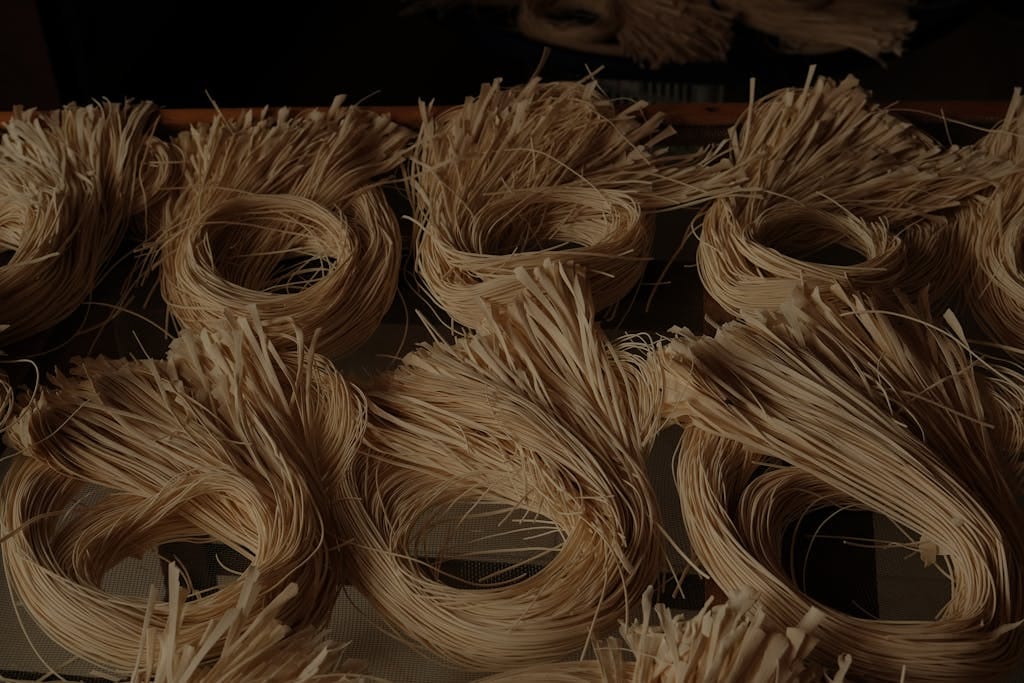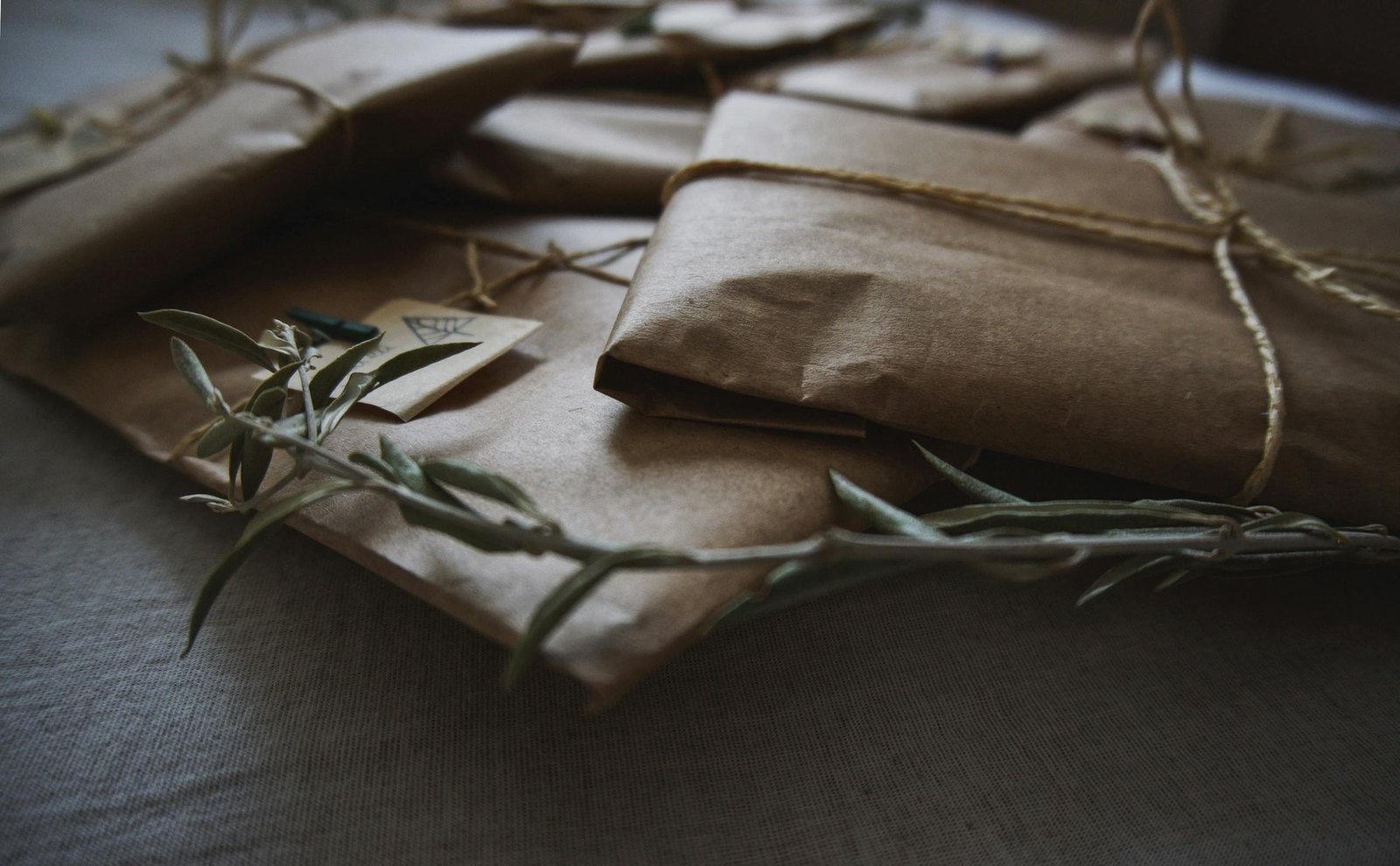Organic wrapping materials are gaining popularity due to increased environmental awareness. These materials are made from sustainable, and biodegradable sources, offering natural and an eco-friendly alternative to traditional plastic and non-recyclable paper wrapping. Organic wraps not only reduce environmental impact but also add a natural aesthetic to product presentation.
Various options for organic wrapping materials include recycled paper, fabric wraps, plant-based materials and biodegradable plastics. These alternatives appeal to both consumers and businesses seeking to minimize waste and environmental footprint. The use of organic wrapping materials combines sustainability with attractive packaging solutions.
This article will examine the advantages of organic wrapping materials, explore the different types available, discuss sourcing methods, provide tips for effective use, and analyze their overall environmental impact. By understanding these aspects, readers can make informed decisions about incorporating organic wrapping materials into their packaging practices.
Key Takeaways
- Organic wrapping materials are a sustainable and eco-friendly alternative to traditional wrapping materials.
- Using organic wrapping materials can reduce the environmental impact of packaging and promote a healthier planet.
- Types of organic wrapping materials include recycled paper, fabric, hemp, and biodegradable plastics.
- Sourcing organic wrapping materials can be done through eco-friendly suppliers, local artisans, and online retailers.
- When using organic wrapping materials, consider reusing and recycling them to minimize waste and maximize their environmental benefits.
Benefits of Using Organic Wrapping Materials
There are numerous benefits to using organic wrapping materials, both for the environment and for the overall presentation of the items being wrapped. One of the primary benefits is the reduced environmental impact. Organic wrapping materials are typically made from renewable resources such as recycled paper, fabric, or plant-based materials, which means they are biodegradable and do not contribute to the growing problem of plastic pollution.
By choosing organic wrapping materials, individuals and businesses can help reduce their carbon footprint and support sustainable practices. In addition to their environmental benefits, organic wrapping materials also offer a unique and natural aesthetic. Whether it’s a beautifully patterned fabric wrap, a rustic kraft paper, or a plant-based cellophane alternative, organic wrapping materials add a touch of charm and elegance to any gift or product.
This can enhance the overall presentation and create a memorable experience for the recipient. Furthermore, organic wrapping materials can be reused or repurposed, adding an extra layer of sustainability to the packaging process. Overall, the benefits of using organic wrapping materials extend beyond just environmental considerations and can positively impact the overall experience of giving and receiving gifts or products.
Types of Organic Wrapping Materials

There is a wide variety of organic wrapping materials available, each with its own unique characteristics and benefits. Recycled paper is a popular choice for those looking for an eco-friendly alternative to traditional wrapping paper. Made from post-consumer waste, recycled paper comes in various colors and patterns, making it a versatile option for all occasions.
Fabric wraps, such as cotton or linen, are another popular choice for organic wrapping materials. These can be used repeatedly and come in a range of designs, from simple solids to intricate patterns, adding a personal touch to the packaging. For those looking for a plant-based alternative to traditional cellophane, there are options such as cellulose-based wraps made from wood pulp or biodegradable plastics derived from cornstarch.
These materials offer the transparency and flexibility of traditional cellophane but with the added benefit of being biodegradable and compostable. Another option is natural twine or raffia for tying off packages, adding a rustic and charming touch to the overall presentation. Overall, the variety of organic wrapping materials available ensures that there is a sustainable option for every packaging need.
How to Source Organic Wrapping Materials
Sourcing organic wrapping materials can be done through a variety of channels, from local retailers to online suppliers. Many eco-friendly and sustainable brands offer organic wrapping materials as part of their product lines, making it easy to find high-quality options that align with environmental values. Local craft stores and specialty shops may also carry organic wrapping materials such as recycled paper or fabric wraps.
Additionally, online marketplaces and eco-conscious websites often have a wide selection of organic wrapping materials available for purchase. For those looking to take a more DIY approach, sourcing organic wrapping materials can involve repurposing items such as fabric scraps or using natural elements like leaves or twigs for decorative accents. Thrift stores and second-hand shops can also be great sources for finding unique fabric wraps or ribbons that can be repurposed for packaging.
Ultimately, sourcing organic wrapping materials can be an opportunity to support local businesses and artisans while also embracing sustainable practices.
Tips for Using Organic Wrapping Materials
When using organic wrapping materials, there are several tips to keep in mind to ensure a successful and visually appealing presentation. First, consider the occasion and the recipient when choosing the appropriate organic wrapping material. For example, a simple kraft paper may be suitable for a rustic-themed gift, while a vibrant fabric wrap may be more fitting for a celebratory occasion.
Additionally, consider incorporating natural elements such as dried flowers or foliage to add a personalized touch to the packaging. Another tip is to explore creative ways to reuse and repurpose organic wrapping materials. Fabric wraps can be used as scarves or handkerchiefs, while recycled paper can be turned into handmade cards or decorations.
By finding new uses for these materials, individuals can extend their lifespan and reduce waste. Finally, consider supporting local artisans and businesses that specialize in creating organic wrapping materials. By purchasing from these sources, individuals can contribute to sustainable practices while also enjoying unique and high-quality packaging options.
Environmental Impact of Organic Wrapping Materials

The environmental impact of organic wrapping materials is significant when compared to traditional non-biodegradable options such as plastic or non-recyclable paper. By choosing organic wrapping materials made from renewable resources and biodegradable components, individuals can help reduce the amount of waste that ends up in landfills or pollutes natural ecosystems. Additionally, many organic wrapping materials are compostable, further reducing their environmental impact and contributing to circular waste management practices.
Furthermore, the production of organic wrapping materials often involves fewer harmful chemicals and processes compared to traditional packaging materials. This means that the overall carbon footprint associated with organic wrapping materials is lower, contributing to a more sustainable supply chain. By embracing organic wrapping materials, individuals can play a part in reducing their environmental impact and supporting practices that prioritize the health of the planet.
Embracing Organic Wrapping Materials
In conclusion, organic wrapping materials offer numerous benefits for both individuals and businesses looking to embrace sustainable practices. From reducing environmental impact to adding a unique aesthetic appeal, organic wrapping materials provide a versatile and eco-friendly alternative to traditional packaging options. With a wide variety of types available and numerous sourcing options, incorporating organic wrapping materials into everyday packaging practices is both accessible and rewarding.
By considering the environmental impact of packaging choices and making conscious decisions to use organic wrapping materials, individuals can contribute to a more sustainable future while also enjoying the creative and aesthetic possibilities that these materials offer. Whether it’s recycled paper, fabric wraps, or plant-based alternatives, there is an organic wrapping material suitable for every need. Embracing organic wrapping materials is not only a step towards reducing waste and supporting renewable resources but also an opportunity to enhance the overall experience of giving and receiving gifts or products.
Explore the use of organic materials for wrapping purposes with Bioaqualife’s biodegradable shrink wrap film, BioWrap. This innovative wrap attract microbes, and as they are digested, the material breaks down into soil and natural gases and leaves no microplastics behind. It also achieved a Class A rating in a key flame spread test, ASTM E84, making it a safe and environmentally friendly option for wrapping goods. Learn more about the benefits and environmental impact of boat shrink wrap and how Bioaqualife is leading the way in sustainable packaging solutions. Check out their website for more information on their products and initiatives here.
